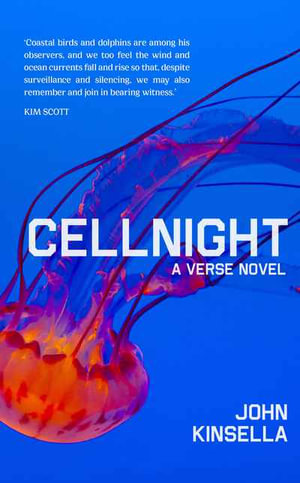Cellnight by John Kinsella

Cellnight is not so much a novel written in verse, but rather it is a poetic expression of the struggle against, the protest for and the people who don’t fit or don’t accept the status quo flow, which is not really a status quo at all. This story starts with an arrest at a protest and paints the picture of the struggle internally and externally for the arrested one, and the words he wants to be expressed; for the truth to come out and for the world to know what should be changed or not accepted – socially or environmentally. Set in Western Australia, and weaving events that made headlines (and some that did not), Kinsella has continued a protest that demands some response before it is too late.
This verse novel is more about poetry than it is about story. The poetry is elegant and sophisticated, mature and thoughtful, and yet simply presented. It demands attention. The narrative aspect of the novel is less easy to connect to, but it is the poetry that is the winner. As poetry is wont to do, it can express a multitude of ideas and complexities in very few words, and Kinsella has certainly done this. Readers of this verse novel will feel the ambiguities and the internal struggles of a protester who might, must, should, could make people think about their choices and actions, while personally having to make his own choices about his own directions for the future. The complexity and direction of his thoughts and emotions are powerful. This is a book that would make for interesting reflection for students of poetry, there are many poetic devices in play; it would also stir those who are keen to consider our environment and the way we live, our past and our future, and how they all collide.
Themes: Environmentalism, Activism, Colonialism, Protest.
Carolyn Hull